Final Fantasy - PSX Era (VII, VIII, IX) [Review]
Terrorists, students and a pink monkey.
![Final Fantasy - PSX Era (VII, VIII, IX) [Review]](/content/images/size/w1200/2025/08/FINAL-FANTASY-VII_20250115164236-1.jpg)
Earlier this year, I had an FF Marathon and all. I've written about them on my backlogged and brought all the texts here already on two different posts: the NES Era (I, II, III) and the SNES Era (IV, V, VI).
The PSX Era is arguably the most popular one of Final Fantasy until this day. While X and XV were massive in their own way, it is on the PlayStation One where the FF franchise really got big. Let's go!
Final Fantasy VII
I don't think that there's any point on being super objective on how I feel about Final Fantasy VII. On this journey of replaying all the Final Fantasy games in order, finding a fondness for 7 was somewhat unexpected for me.
I always loved FF6 and playing it again recently just confirmed what I felt as a kid, but FF7 never really stuck with me when I played at that time. And I blame it on them: everything else related to this base game (the "compilation of FFVII") is often terrible. Advent Children (a bad movie sequel) made me hate Cloud and Tifa, and Dirge of Cerberus (a bad ps2 spin off) made me cringe even as a kid. Every new project on the "compilation" made me dislike the original more, a sensation that peaked, for me, on FF7: Remake, a game that I really didn't like, and almost made me forget how much the original is good.
Because, oh wow, it is fantastic. Of course that I was reminded of how this game is iconic with FF7: Rebirth last year, finally something great from the "Compilation", but the original is amazing in so many ways. The story and overall plot is great, as the interactions between the characters; the antagonist is really iconic and flashed out, as every single party member as well, with a cinematic feel that really delivers, even with boxy models and goofy movement.
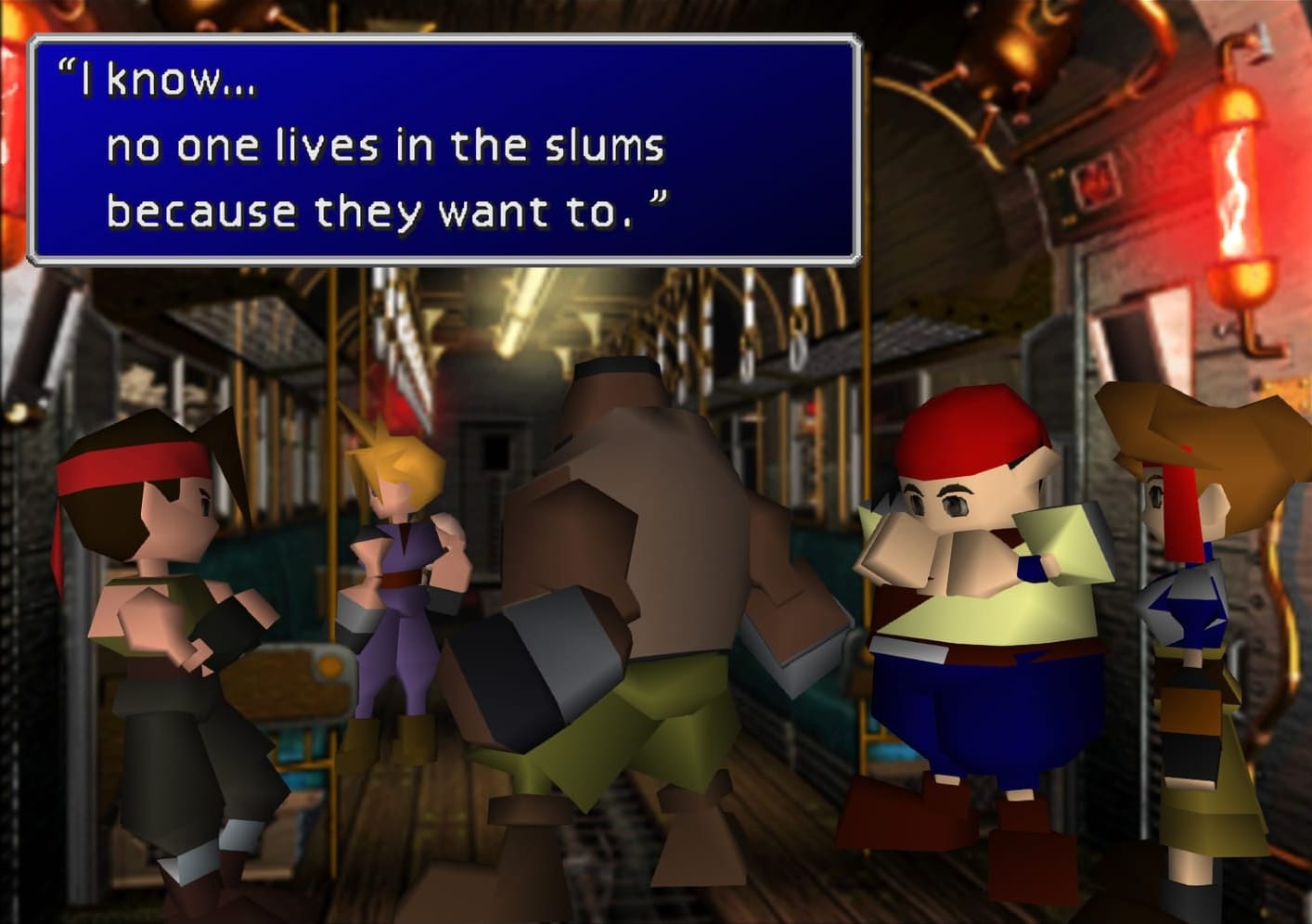
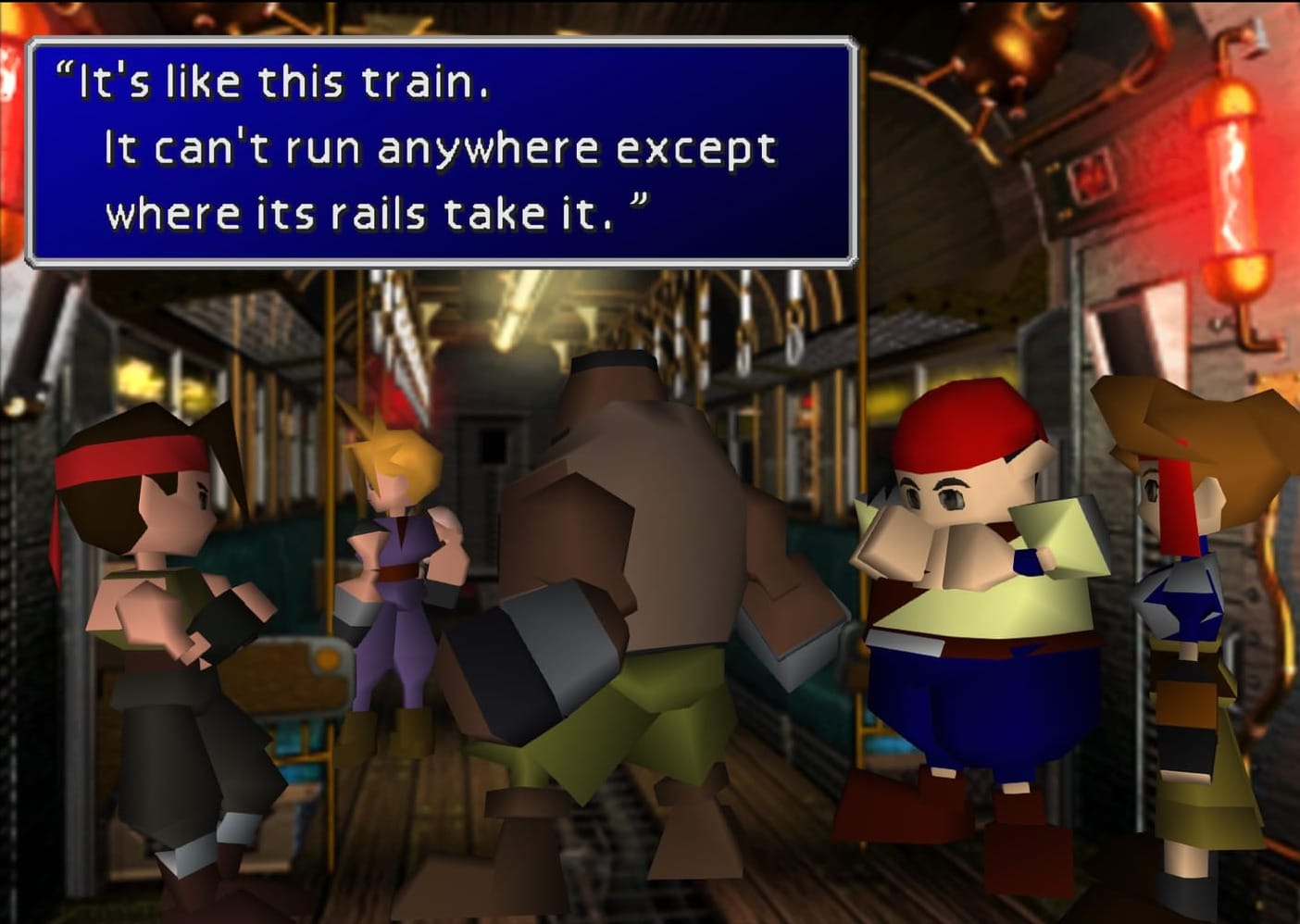
It is, indeed, boxy. There are technical problems as well, with the environments not being in the same resolution as the (mildly) improved models, and cutscenes being heavily compressed and unvoiced. Remnants of the original release of the game. It also has some simplifications: the active party is reduced to 3, the pace of the battle is slower (the first 10 hours would be terrible without 3x speed) and there are several unfair difficulty spikes.
The dungeons are small, as are the cities outside Midgard: everything is a bit smaller when compared to FF6, but the 3D overworld creates some challenges on the exploration that are nice. There aren't many sidequests, and there's not so much to do outside the main story, but the game length is good, bigger than any game in the series before, and every character has an arc. By the end, everyone is different and more mature.
It is hard not to oversell the story, but to hell with it: the whole setting and world-building are amazing, the cyberpunk themes are well implemented, and both the premise and the execution of its ideas are all well-made, unexpected considering how many times the game blatantly lies to the player to create nice and explosive reveals and twists.
FF7 paces it stories and events not only with battle content, and really does have lots of mini-games throughout the main scenario. Most of them simple, some of them more complex, sometimes the pace is interrupted abruptly by them. The problem is not on the amount of minigames, but on the fact that sometimes it can be a bit too weird to control them, or they are just a bit too obnoxious and not that well-made.
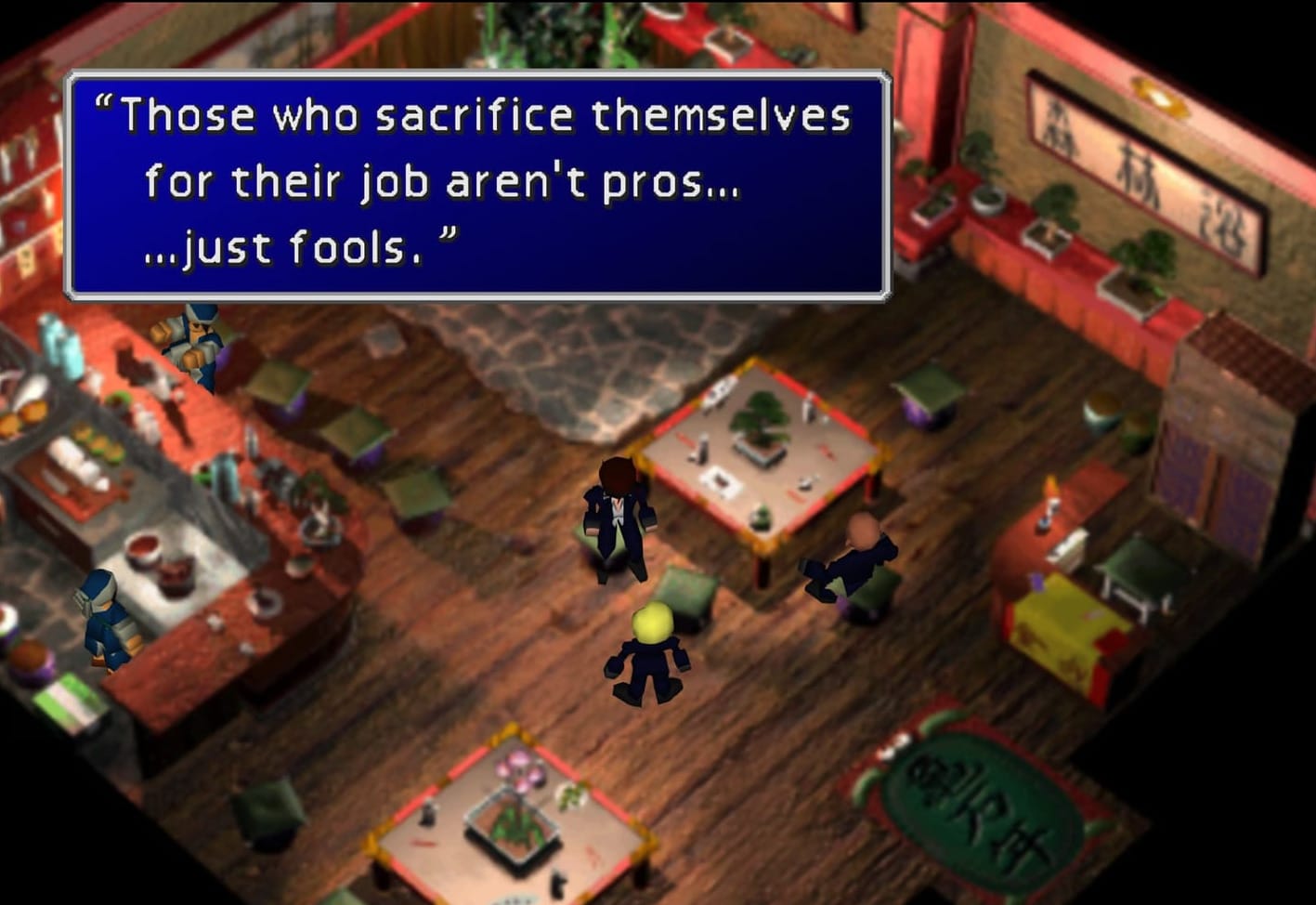
The "Third Dimension" does not create here a bigger experience than what the series has had before on battles or exploration, but it does increase the cinematic value and makes the story progression more organic. On one hand, the game has fewer cities and dungeons than what we had before, but on the other, the characters are so memorable, the setting so well done and the bosses iconic, mixed with a killer soundtrack and lots of mysteries to literally talk about for decades, all of these makes FF7 fantastic, even if more on rails than I wanted.
I can't wait to see the end of the whole compilation after all with the next game on the remake trilogy, but playing again the original reminded me of how special this game is.
8.5/10
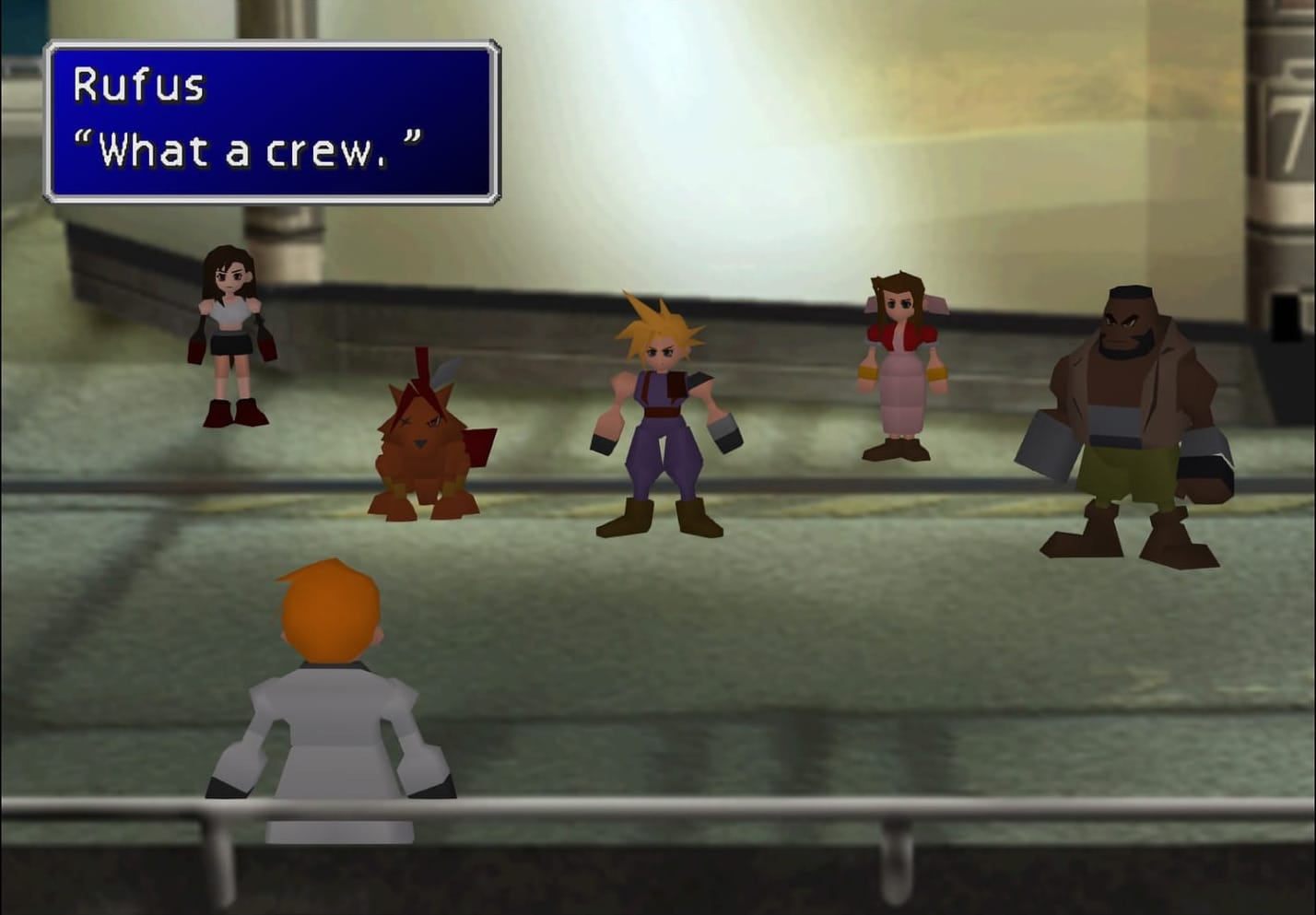
Final Fantasy VIII Remastered
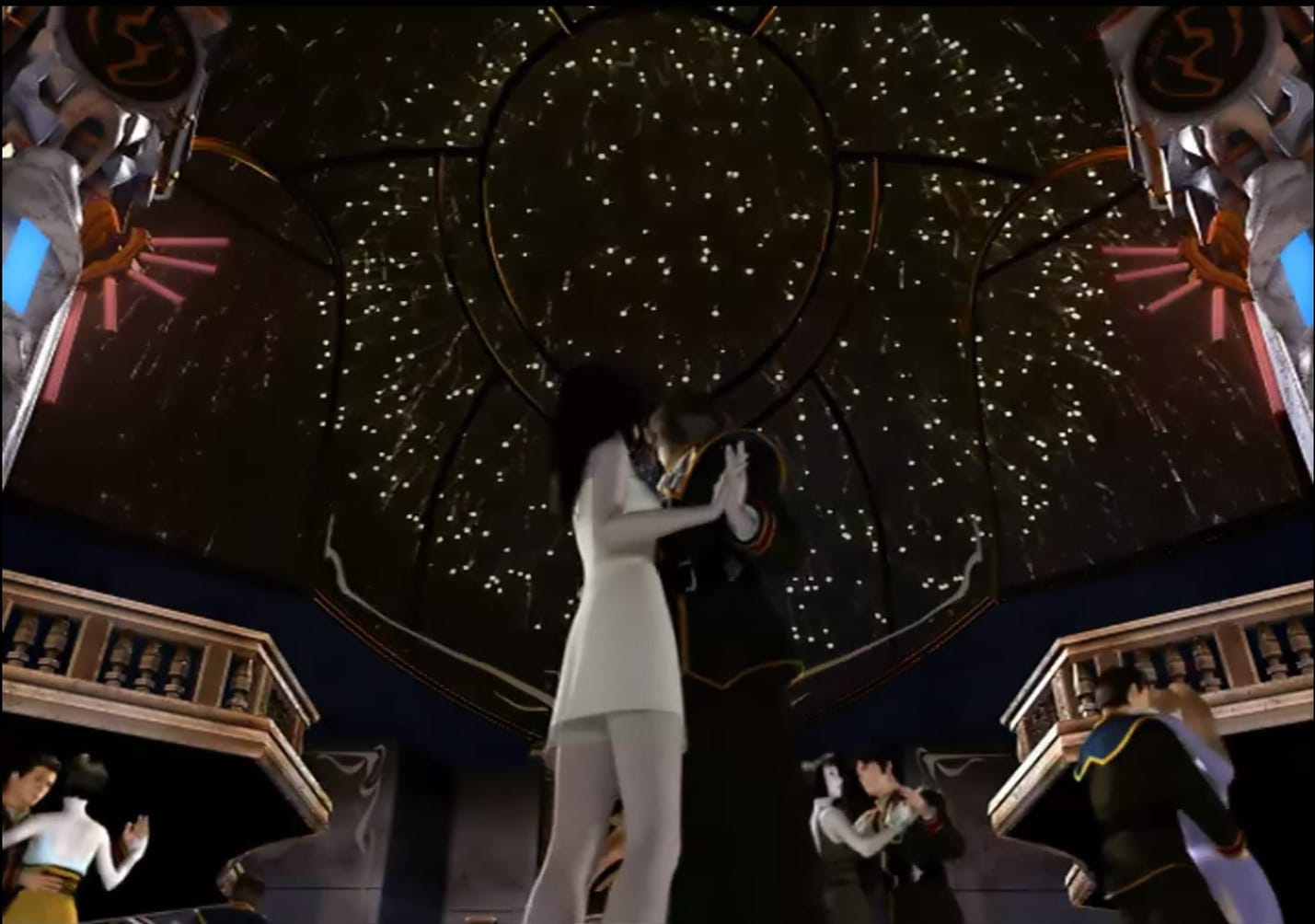
It seems that they've gone out of their way to make a game with the least recognizable Final Fantasy characteristics so far, where everything is second to the story and narrative, sometimes even resembling a Visual Novel. Lots of reading, character interactions, world building and plot.
The other unrelenting compromise that FF8 does is breaking away with many traditions of the series: chocobos and moogles have a very reduced importance; now we're talking about big cities, trains, highways, cars, and heavy science fiction. Almost to no references to crystals, kingdoms or any sort of classic fantasy trope – things that even FF7 incorporated in its cyberpunk themes.
Having that high Sci-Fi feel with intense and cult-like magic system creates one of – if not, the – most unique RPG I've ever played regarding its worldbuilding and aesthetics. Squall is part of a very mysterious and somewhat shady private combat academy, with classrooms, balls, teachers and all, and the story is way weirder and more surreal than I imagined at a first glance.
The mysteries start to pile up, and suddenly I've found myself obsessed with FF8, I just couldn't stop playing it, I wanted to know where things were headed and what was happening to these characters. Each revelation made me like the crew more, and while I was a bit off on some party members in the beginning, like Selphie and Zell, by the end, I've learnt to love them so much and everything fit well to the overarching story.
The willingness to break traditions continues on all its exploration and combat as well. For the most part of the game, I faced the world as I would've in real life, getting trains, renting cars, getting lost and looking at a map that is actually helpful, while receiving a salary that not always is enough.
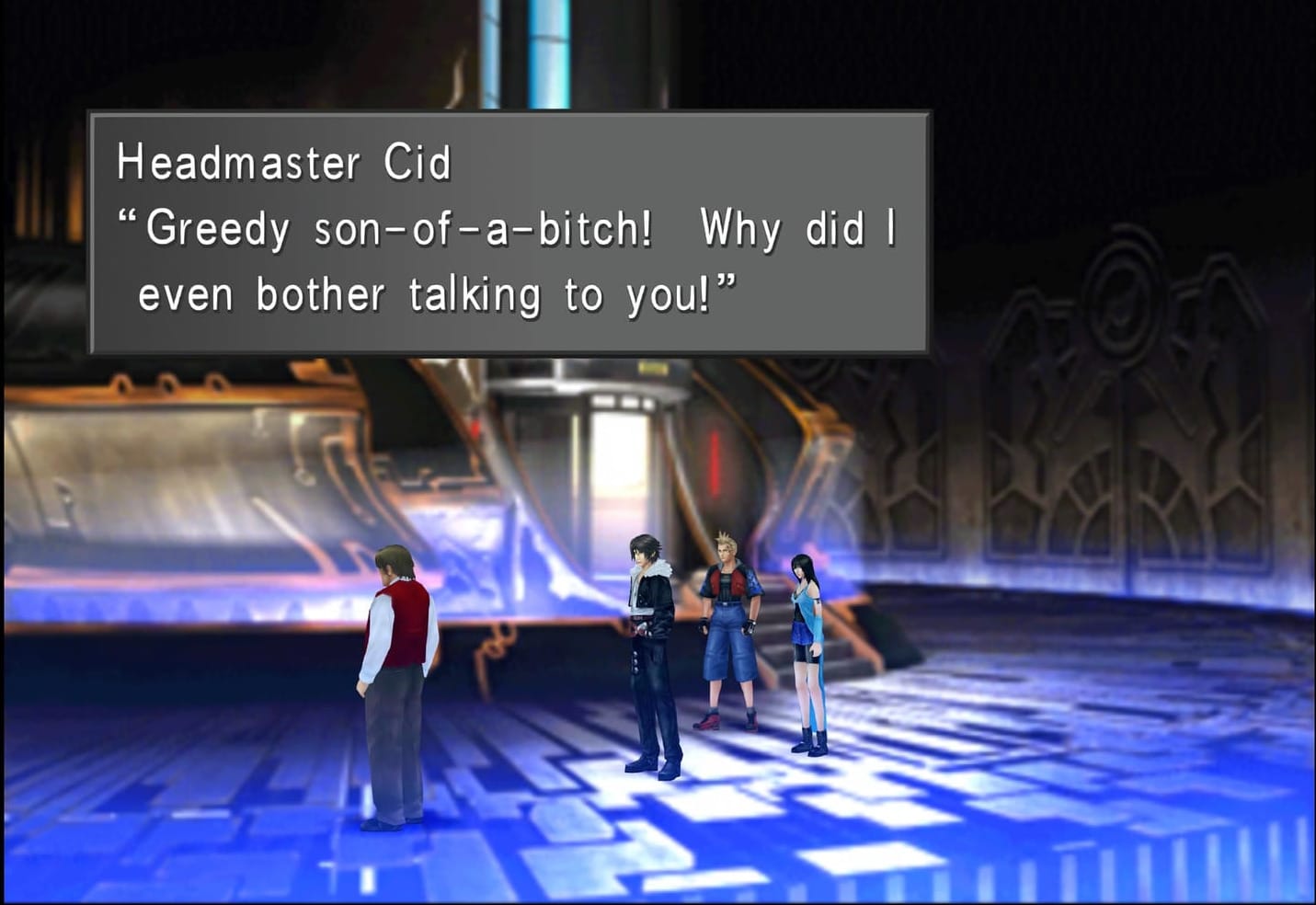
The “on rails” accusations are quite true: the world is traversed by train and that's it, until the third act. I've got to find the right place, station, guard or whatnot to progress, still, this game is way more linear than anything that came before, and takes a long time to open its world up to the player. But it happens, eventually.
The cities are immense and a maze on their own, but indeed they have a severe lack of interactivity – while some shops can offer interesting stuff to some specific party members, most of the interactions on the cities outside the main scenario are limited…
… Mostly because in Final Fantasy VIII, equipment, MP, traditional job systems, constant weapon changes, accessories: it is all gone. There's no need to buy rings and armor as in other RPGs, nor abilities and new skills; everything is different and somewhat second to the plot: each character has a specific play style that somewhat resembles traditional FF jobs, but not always. The cast gets new skills by “draining” them from the enemies, and any party member can use these drained magics. It is also possible to mix and match magic with current statuses and abilities, finally making the party stronger. The level is irrelevant, as every enemy of the game (including bosses) will stay in the same level as the party, and what decides what magic is allocatable is what summons the character has equipped – this all is named the Junction System, and creates a game with challenging and iconic bosses (including an anxiety inducing last one) but even more forgettable random encounters.
Focusing on summons is a nice thing, and honestly reminded me a bit of the much more recent Persona series (3 onward), as I needed to gather new demons and Summons all around the world to properly equip and strengthen my jovial party members. It is a game that forces the player to understand its systems, and that's not always well done, though: too many slow paced tutorials on mostly black and red UIs (for the first time, not blue!) tries to explain by telling and not showing. More than once I understood something about the game long after the tutorial because it never shows its complex (and very much required) systems in action.
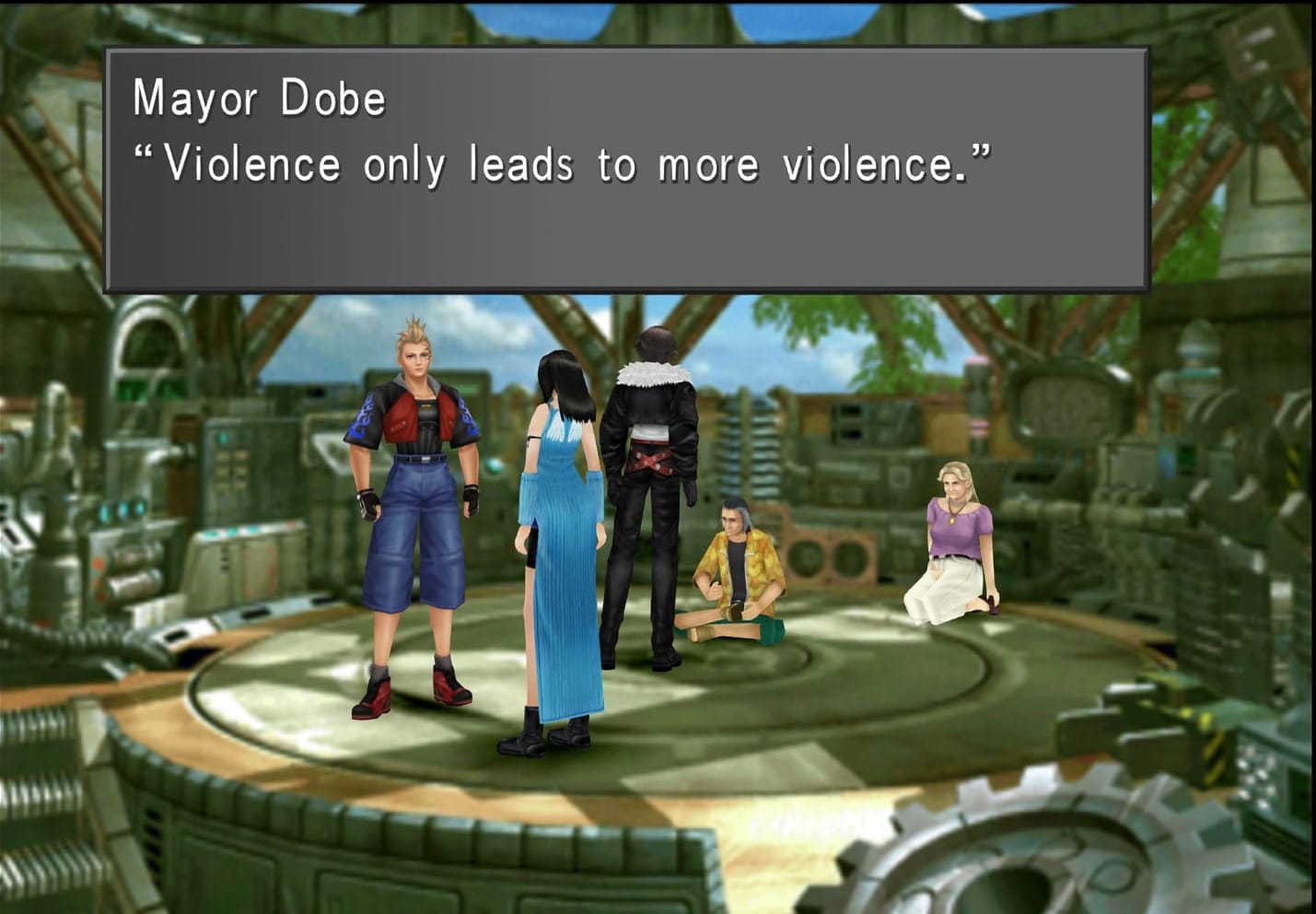
The level scaling is hit or miss too: while absurdly modern – something that other RPGs started doing in 2015 and FF8 did in 1999 – makes grinding not necessary in the game (good), but I've never really felt more powerful (bad). It was a 35 ish hour game for me that I really didn't felt stronger by the end. The battles aren't the focus of the game, so it is not that much of a big deal.
FF8 has a TON of side content as well, mostly in the middle of game, and I haven't done all of them, only 2 (of the 6 ish) long sidequests, and I'm sure that completing every side adventure would sooth this feeling of weakness that I had by the end, but it is still at the games fault as this was not something that I personally felt on other Final Fantasy games that doesn't have any kind of level scaling whatsoever.
The reason why many of the sidequests didn't excite me is that sometimes they may feel like chores. Everything is a bit harder to understand than it should, the environments are not always easy to see where to progress because, unlike FF7, there are no arrows showing where the player can interact in the pre-rendered spaces. They have great rewards in new summons and monsters, but not much of a narrative reward, and the game focus so much on its story and characters that I've felt a bit underwhelmed by the side content.
It doesn't really matter, the length of the game was good for me (the remastered version having 3X time speed helps a lot), and while there were fewer dungeons and exploration within the main scenario than what I'd have wanted, the trade off is having a more cinematic and cutscene heavy game that focus on its great story and characters.
While FF8 makes a lot of mistakes, it also delivers striving successes, I couldn't recommend it enough. As a kid, I couldn't really finish the first act of the game. I should've, though, because when the tutorials stop appearing and everything starts to make sense, this game shines, even with some faults.
8/10
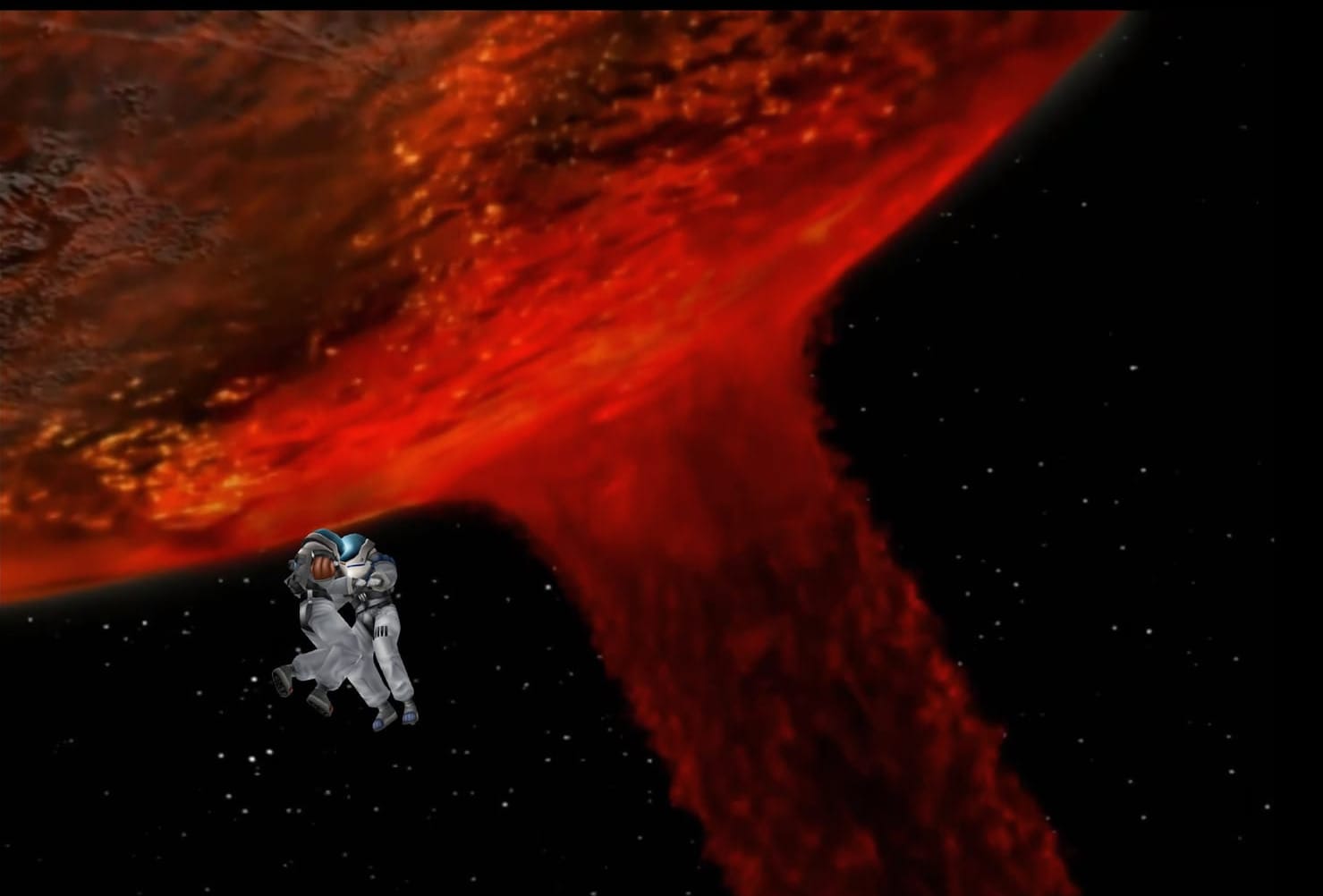
Final Fantasy IX
Like an adventure and a tale, FF9 returns (for the most part) to the low-tech, high fantasy environment, with simpler but emotionally charged characters and a world shaped by crystals, hope, and fear.
Zidane is one of the few main characters in the franchise that actually wants to be and tries to act as the hero of the story first, know about himself later. That's super nice, even if in the beginning he may feel a bit obnoxious, in little to no time his charm wins over anything. FF9 is like 6 in the way that sometimes shifts the main playable character and active party, so many times I was playing with a different party leader and seeing different perspectives, making the player navigate through all the cast at one time or another.
It is a reduced crew when compared to previous entries, but the game has less focus on the story than 7 or 8, and the active party on battle and exploration returns to be 4 characters at once, which greatly improved the flow of combat, even if (again) a bit slower than what I wanted. Unfortunately, characters do not follow the player when exploring or walking around like in 8, but the way I interacted with some cities and saw some stories are greatly improved in 9.
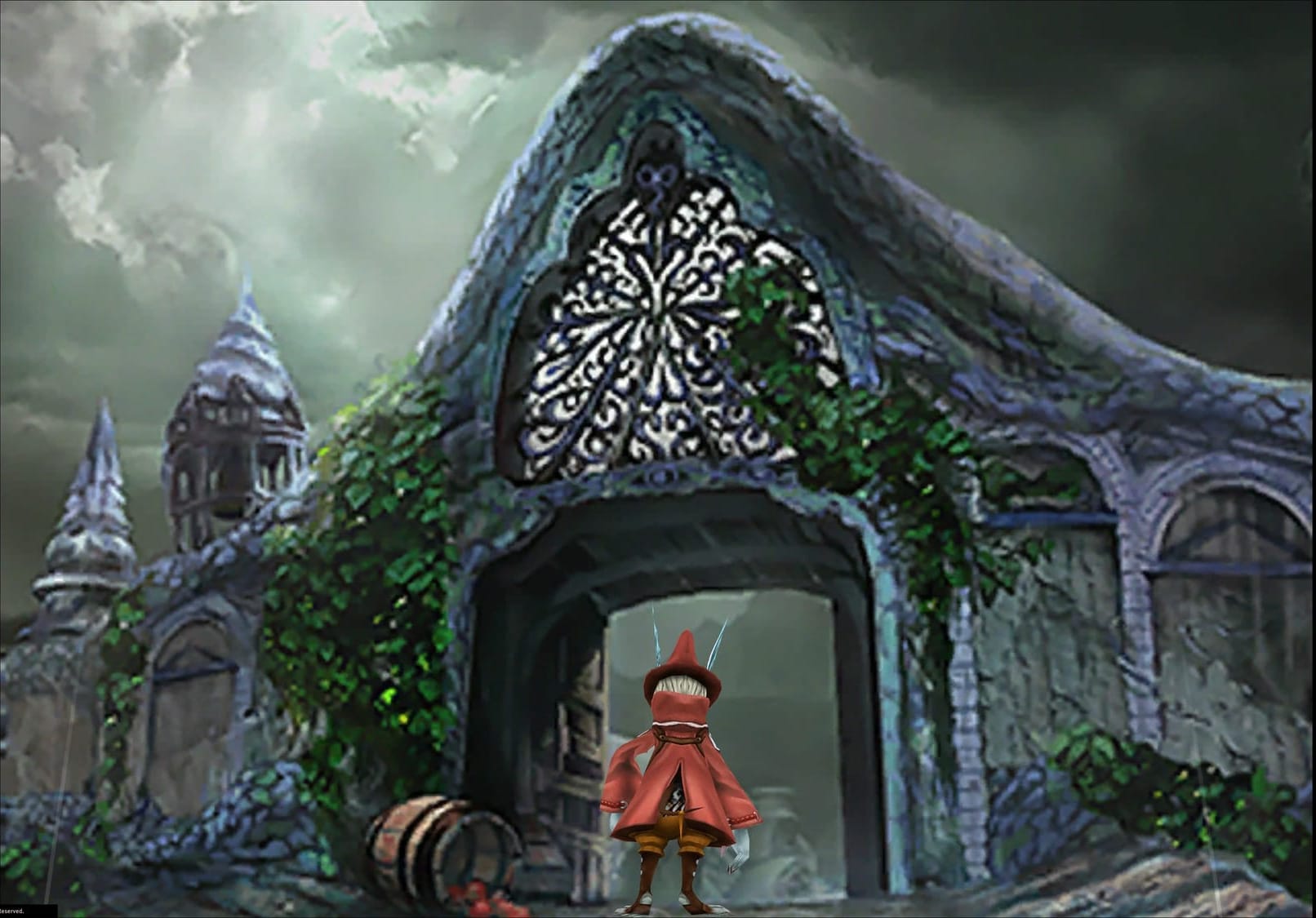
Now, when the party enters a city for the first time, they will often go to different places in town, and the player can see their specific POVs and how they explore the city while while also discovering stuff and talking with people. That makes the cities super unique and less repetitive, at the same time that flashes out all the other characters in a more personal way.
The returning systems like gearing and shops are improved, and there's a new system called “Synthesis” that makes it possible to use other / older gear to make new, better and unique gear that unlocks more powerful abilities to learn. While synthesis for equipment exists for all the party members, only Zidane has access to synthesis weapons, and that's a big missed opportunity considering that every character has a unique weapon archetype. Weapons and equipment are the ways to unlock new abilities, so getting new pieces of them often comes with the excitement of a new spell or passive bonus, and that was a great way to make the rewards better.
Overall speaking, every dungeon and place I visited outside cities are bigger and better. More puzzles were integrated in the dungeons, and they're fun and simple most of the time. It is sad that the last dungeon is so basic, though, considering what came before. The battle system, as I said, now have four active members again, and lots of spells and summons to get and find throughout the world.
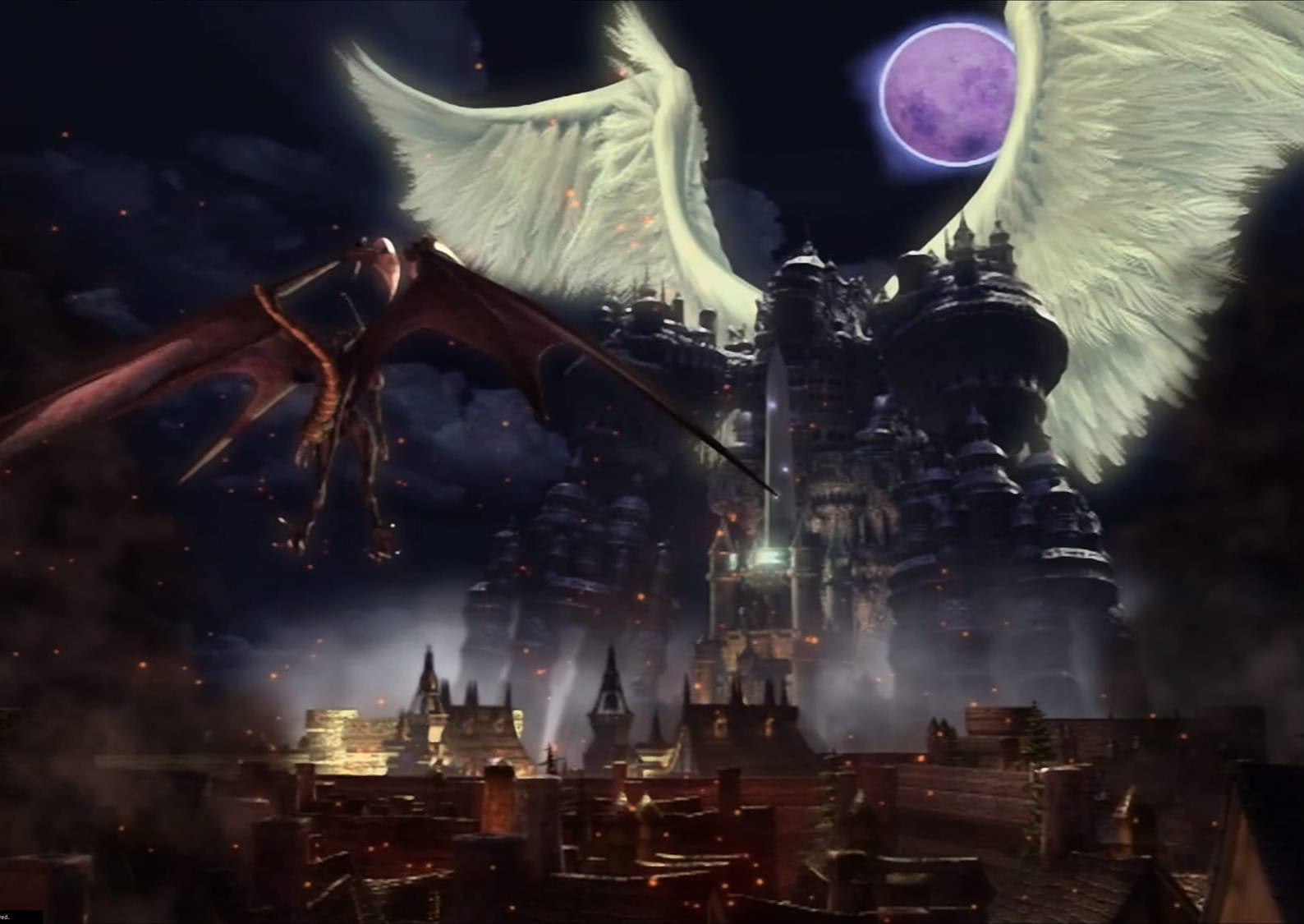
A world that is more open-ended than the previous 3D titles, with special encounters on the battle system (finally), rare monsters, less but better mini-games and lots of secrets and reasons to return to the places I've been before. The “new” battle system here is the “Trance”, which is a state that the party members enter when a special gauge gets complete, and then they get access to better stats and special abilities for a limited time. It is not groundbreaking, and honestly not that well implemented, but fun when it happens.
Besides that, everything else is surprisingly well-structured and balanced. Be it gearing, weapons, abilities, bosses, dungeons etc. FF9 may not have the most groundbreaking setting or game mechanics that ever existed in RPGs, but as the story progresses and the themes of life, death, existence, and friendship start to appear, paired with each character unique struggles and well implemented RPG systems, it cliques, and creates an experience to be remembered.
9/10
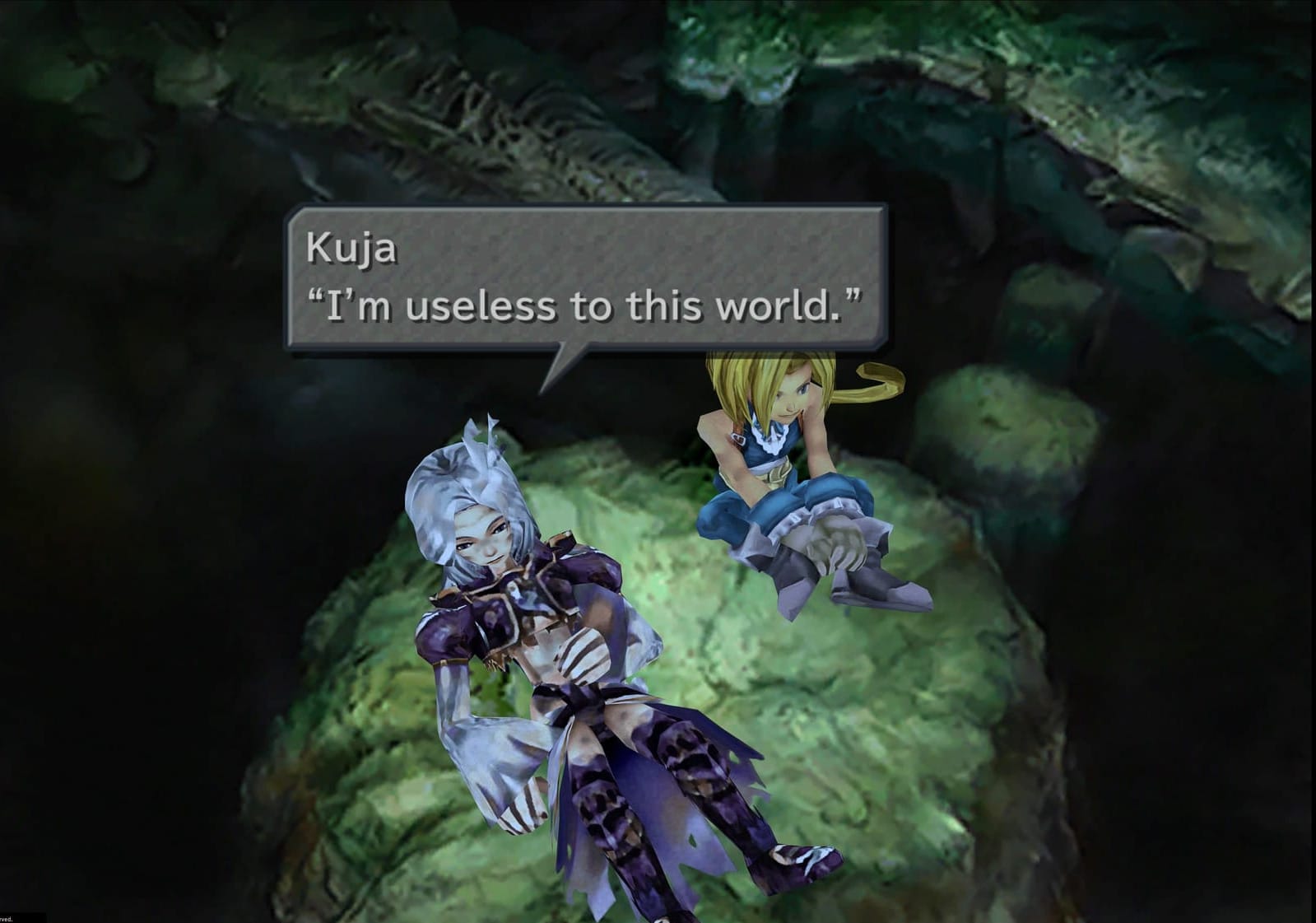
I think that together with the MGS Master Collection review, this is the longest text on the website. All of these three games were pretty good!
It is getting to a point here on versusthe.space where everything that I had previously written is ending, so I could have separated this giant post to three different ones, but I wanted to make every 'old' FF be stacked together in posts like this.
We will see each other again on the PS2 era post!